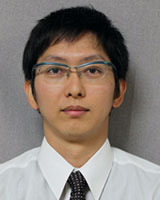Dear Editor,
Area-specific approaches are necessary to deal with decompression sickness (DS), which requires prompt hyperbaric oxygen therapy (HBO) while avoiding low air pressure often involved in air-medical transport1. The authors recently proposed a strategy for treating DS on remote islands in Japan1, and now report a subsequent case of DS, which highlights the usefulness of sharing DS information in an internet-based forum.
For three decades, the present authors, who are all Jichi Medial University (JMU) graduates, have provided island medical services in Japan's south-east Tokyo Prefecture. With approximately 100 JMU graduate physicians, the authors are members of an internet forum (IF) for physicians who have previously been or are currently responsible for island medical services in this area. The JMU is a special medical school that produces rural physicians, and its graduates are obliged to work in rural areas of their home prefecture for approximately 6 years2. Twenty current JMU medical students who will work as island physicians are also members of the IF. Forum content is related to 'island medicine today', including the presentation of case reports and medical dilemmas, as well as discussion of relevant subjects such as patient transfer systems. The authors' recent publication in this journal1 was shared with the IF members, and prompted discussion of the following case.
Recently, a 56 year-old man, who had previously been diagnosed with vertebral artery stenosis by cerebral angiography, suffered vertigo with nystagmus immediately after making a deep-sea dive. He visited the first author in Kozu Island Clinic, 178 km from the center of Tokyo. Because DS must be differentiated from brain stem infarction, a brain CT was performed and no abnormalities were detected. At this point, the clinical choices were to: (i) transport the patient to an urban center; or (ii) employ HBO immediately at the island clinic and observe him for evidence of cerebral infarction and the need for subsequent transport.
The transportation options were either a 6 hour boat journey or low altitude helicopter flight. Transport by boat would prevent early treatment; however, helicopter transport was impossible due to local flight regulations. This information was shared by the first author (the treating physician) with other JMU IF physicians with a request for assistance. The JMU IF physicians provided information about DS in this area, assisting the treating physician to make a diagnosis and commence HBO treatment immediately, which resolved the DS without sequelae.
While the correct diagnostic choice was made, this was only apparent in retrospect; so the IF could not be credited with directly solving the treating physician's diagnostic dilemma. Rather, the IF provided information about DS and surrounding area-specific conditions, which assisted his diagnosis.
As has been reported in Rural and Remote Health previously, systematic internet use, such as a 'journal club'3, 'net-based education'4, or 'net-based learning courses'5 provides a useful resource for rural physicians. Here, we add that an IF, which allows less formal but mutual communication among members, is also important.
In this way, while the JMU IF will continue to address issues specific to the provision of remote island health care (including the diagnosis and treatment of DS), rural health journal publications benefit not only journal readers and authors, but also 'hidden observers' such as physicians who share their publications via IF.
Acknowledgements
The authors thank Dr Teppei Matsubara (Department of Neurosurgery of Tsukuba University), the Clinical Research Support Team Jichi, and the Tokyo Jichi Medical University Graduate Team for their advice.
Yuki Tateno1 MD, Toshihide Sato2 MD, Shigeki Matsubara3 PhD
1Kozu Nation Health Insurance Clinic, Kozusima, and
2Niijima Nation Health Insurance Clinic, Niijima, Tokyo, and
3Department of Obstetrics and Gynecology, Jichi Medical University, Tochigi, Japan
References
1. Sato T, Iga T, Nagashima K, Matsubara S. Is centralization in emergency rural medicine always right? Lessons learned from two cases of decompression sickness. Rural Remote Health 11:1711. (Online) 2011. Available: www.rrh.org.au (Accessed 5 July 2011).
2. Inoue K, Hirayama Y, Igarashi M. A medical school for rural areas. Medical Education 1997; 31(6): 430-434.
3. Wilson SF, Collins N. Video outreach journal club. Rural Remote Health 5:355. (Online) 2005. Available: www.rrh.org.au (Accessed 5 July 2011).
4. Kildea S, Barclay L, Brodie P. Maternity care in the bush: using the internet to provide educational resources to isolated practitioners. Rural Remote Health 6:559. (Online) 2006. Available: www.rrh.org.au (Accessed 5 July 2011).
5. Janes R, Arroll B, Buetow S, Coster G, McCormick R, Hague I. Rural New Zealand health professionals' perceived barriers to greater use of the internet for learning. Rural Remote Health 5:436. (Online) 2005. Available: www.rrh.org.au (Accessed 5 July 2011).


